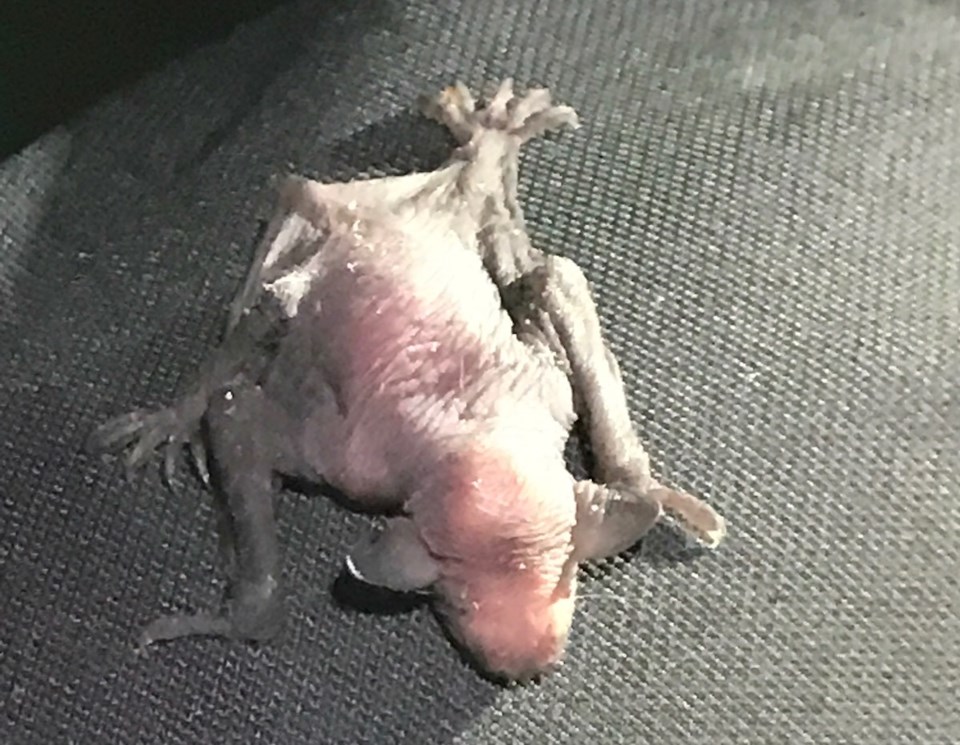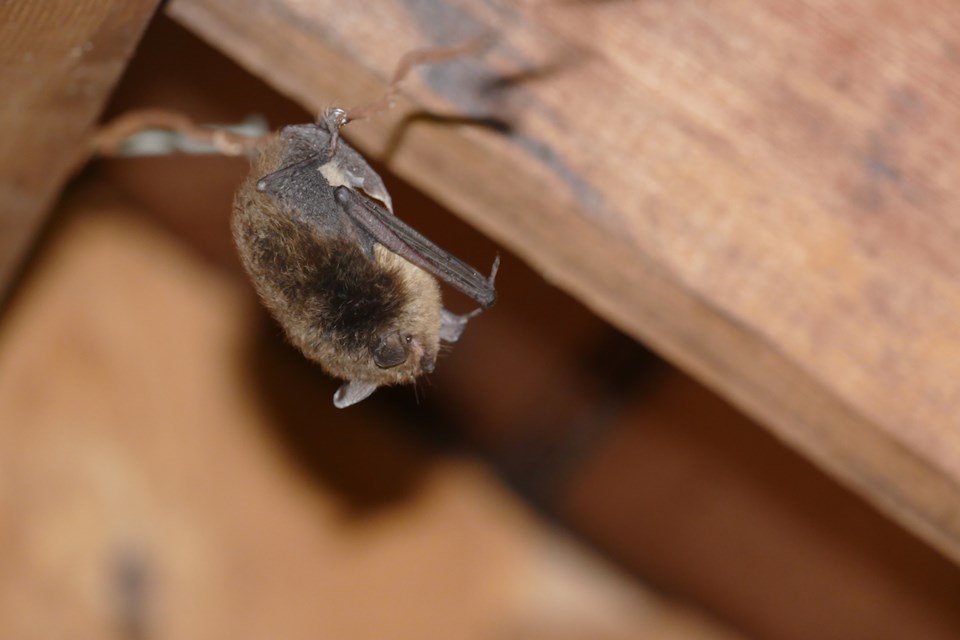No one in my family played tennis but we always had a second-hand racket handy in a bedroom closet.
That’s because we lived in a 100-year-old house and 100-year-old houses have bats.
It’s shameful to admit it today, but that’s how we dealt with the occasional bat that terrified itself, and us, by wiggling its way out of the attic and into our living space.
My parents would position one or more kids at one end of the upstairs hallway and my dad would stand at the other, tennis racket in hand. The kids’ job was to yell and jump in an effort to send the bat towards my father. With all the bedroom doors closed, there was, alas, no escape for the poor bat.
I’ve heard of other families who did the same thing, only they used pillow cases to try to live-trap the poor creature. We didn't have the talent to pull off such heroics.
It’s too bad that we didn’t have access to Got Bats? The B.C. Community Bat Program website provides helpful hints on how to safely remove bats from your house. No tennis racket required.
If you’re noticing an increase in bat activity right now, there’s a reason.
“Female bats gather in maternity colonies in early summer, where they will remain until the pups are ready to fly,” says a press release from the program. “Some species of bats have adapted to live in human structures, and colonies may be found under roofs or siding, or in attics, barns, or other buildings.

“At this time of year, baby bats, pups, are now independent and are adventuring outside their roost. They are mastering flying and learning to hunt insects. Many people may get surprise visits from young pups” who have not yet mastered echolation.
“Don’t be alarmed,” says Danielle Dagenais, biologist and coordinator with the BC Community Bat Program for the Greater Vancouver-Squamish region. “They will find their own way out if you leave a window or door open for them.”
Bats are not flying mice or rats, says Britannica’s online encyclopedia.
“It used to be thought that bats were actually closely related to primates — including humans — but recent genome analysis has classified them in a superorder that includes animals such as pangolins and whales,” Britannica says.
Under the BC Wildlife Act it is illegal to exterminate or harm bats, and exclusion can only be done in the fall and winter after it is determined that the bats are no longer in the building.”
As well as inviting people to download the “managing bats in buildings” pdf, the program is also encouraging us to report bat mortalities (preferably not human-inflicted) in houses, barns or bat houses.
Go to BCBats.ca or call 1-855-9BC-BATS ext. 11 for information on how to safely remove a bat from your house, to report bat sightings, or to get advice and support about bats in your house.



